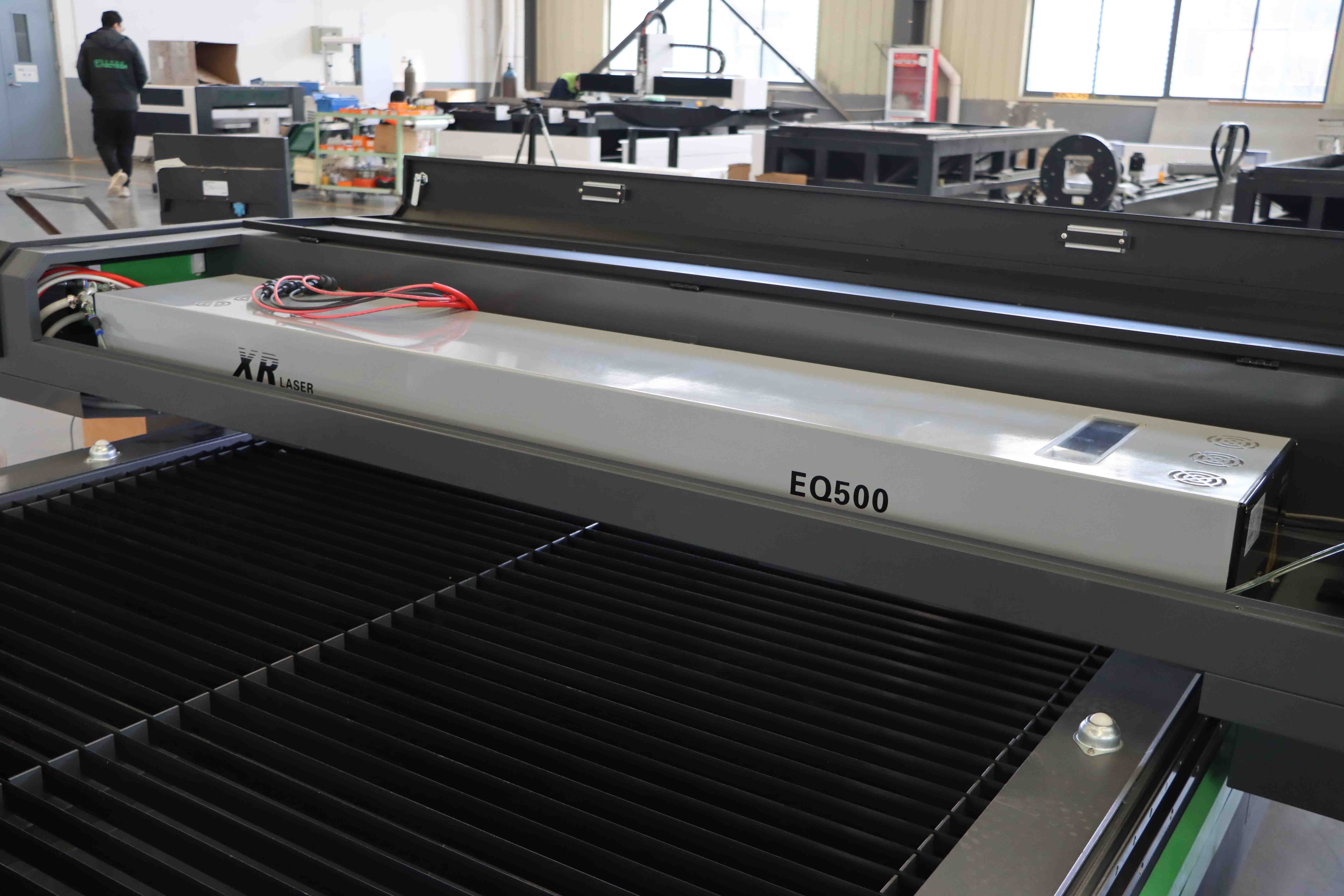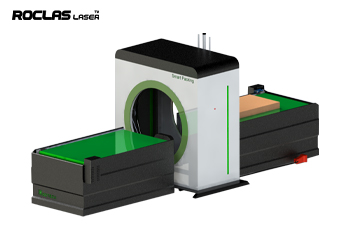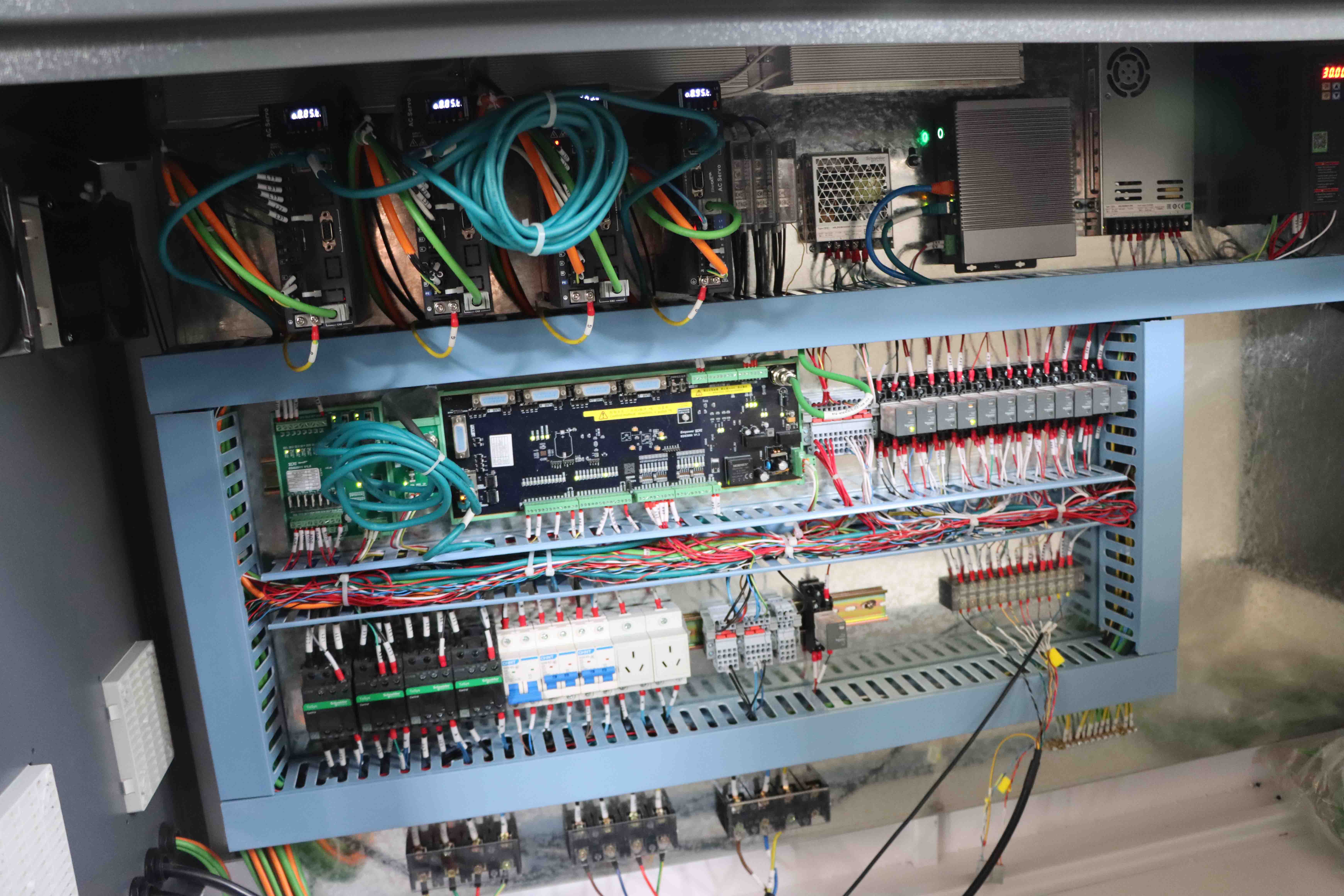Giới thiệu
Nhu cầu về độ chính xác, hiệu quả và tính linh hoạt chưa bao giờ cao hơn trong thế giới sản xuất đang phát triển. Máy laser công nghiệp đã trở thành một công nghệ nền tảng đã thay đổi cách ngành công nghiệp cắt, khắc, hàn và đánh dấu. Trong số các loại máy laser khác nhau, máy cắt laser sợi quang nhận được sự chú ý rộng rãi cho hiệu suất vượt trội, độ tin cậy và hiệu quả chi phí. Bài viết này đi sâu vào các tính năng, lợi thế và ứng dụng của máy laser công nghiệp tốt nhất, đặc biệt chú ý đến công nghệ cắt laser sợi quang.
Tìm hiểu về máy laser công nghiệp
Máy laser công nghiệp là công cụ tiên tiến sử dụng chùm tia laser cho nhiều nhiệm vụ khác nhau, bao gồm cắt, khắc, hàn và đánh dấu. Những máy này được sử dụng rộng rãi trong ô tô, hàng không vũ trụ, điện tử, thiết bị y tế và các ngành công nghiệp khác. Ưu điểm chính của máy laser là khả năng cung cấp độ chính xác cao và khả năng lặp lại, điều này rất quan trọng để sản xuất các thành phần phức tạp và đảm bảo chất lượng phù hợp.

Các loại máy laser công nghiệp

There are several types of industrial laser machines, each suited for specific applications
1. CO2 Laser Machines These machines use a carbon dioxide gas mixture as the laser source. They are ideal for cutting, engraving, and marking non-metallic materials such as wood, acrylic, and plastics. However, they are less effective for cutting metals.
2. Fiber Laser Machines Fiber laser machines use a solid-state laser source, typically doped with rare-earth elements like erbium or ytterbium. They are highly efficient for cutting, engraving, and marking metals, including steel, aluminum, and copper. Fiber lasers are known for their high power output, long lifespan, and low maintenance requirements.

3. NdYAG and NdYVO4 Laser Machines These machines use neodymium-doped crystals as the laser source. They are suitable for high-precision applications such as micro-machining, drilling, and marking. However, they are less commonly used in industrial settings compared to CO2 and fiber lasers.
4. Diode Laser Machines Diode lasers are compact and energy-efficient, making them suitable for low-power applications such as engraving and marking. They are often used in consumer electronics and small-scale manufacturing.
Why Fiber Laser Cutting Machines Stand Out
Among the various types of industrial laser machines, fiber laser cutting machines have emerged as the best choice for many applications. Here are some reasons why
1. High Precision and Accuracy Fiber laser cutting machines offer exceptional precision, with cutting tolerances as low as 0.1 mm. This level of accuracy is essential for manufacturing intricate components and ensuring tight tolerances.
2. Speed and Efficiency Fiber lasers are significantly faster than traditional cutting methods, such as mechanical cutting or plasma cutting. This increased speed translates to higher productivity and reduced lead times.
3. Versatility Fiber laser cutting machines can process a wide range of materials, including carbon steel, stainless steel, aluminum, brass, and copper. This versatility makes them suitable for various industries, from automotive to electronics.
4. Low Operating Costs Fiber lasers have a long lifespan, often exceeding 100,000 hours of operation. They also require minimal maintenance, reducing downtime and operational costs. Additionally, fiber lasers are energy-efficient, consuming less power compared to CO2 lasers.
5. Clean and Smooth Cuts Fiber lasers produce clean, burr-free cuts with smooth edges, eliminating the need for secondary finishing processes. This results in higher-quality products and reduced post-processing costs.
6. Compact Design Fiber laser cutting machines have a compact design, making them easy to integrate into existing production lines. Their small footprint also saves valuable floor space in manufacturing facilities.
Applications of Fiber Laser Cutting Machines
Fiber laser cutting machines are used in a wide range of industries and applications, including
1. Automotive Industry Fiber lasers are used to cut and shape various automotive components, such as chassis, body panels, and engine parts. Their precision and speed are crucial for meeting the stringent quality standards of the automotive industry.
2. Aerospace Industry The aerospace industry demands high precision and reliability, making fiber laser cutting machines an ideal choice for manufacturing aircraft components, such as turbine blades, fuselage parts, and structural elements.
3. Electronics Industry Fiber lasers are used to cut and engrave electronic components, such as circuit boards, connectors, and housings. Their ability to process thin and delicate materials without causing damage is essential for the electronics industry.
4. Medical Devices Fiber laser cutting machines are used to manufacture medical devices, such as surgical instruments, implants, and diagnostic equipment. Their precision and ability to work with biocompatible materials are critical for ensuring patient safety and product efficacy.
5. Metal Fabrication Fiber lasers are widely used in the metal fabrication industry for cutting and shaping metal sheets, tubes, and profiles. Their versatility and efficiency make them suitable for both small-scale and large-scale production.
6. Jewelry Industry Fiber lasers are used to cut and engrave precious metals, such as gold, silver, and platinum, with high precision. This allows jewelers to create intricate designs and custom pieces with ease.
Choosing the Best Industrial Laser Machine
When selecting the best industrial laser machine for your needs, consider the following factors
1. Material Type Determine the types of materials you will be processing. If you primarily work with metals, a fiber laser cutting machine is the best choice. For non-metallic materials, a CO2 laser machine may be more suitable.
2. Power Output The power output of the laser machine affects its cutting speed and thickness capacity. Higher power machines can cut thicker materials faster but may come at a higher cost.
3. Cutting Area Consider the size of the materials you will be working with. Choose a machine with a cutting area that accommodates your largest workpieces.
4. Precision Requirements Evaluate the level of precision needed for your applications. Fiber lasers offer the highest precision, making them ideal for intricate and detailed work.
5. Budget Industrial laser machines vary in price, depending on their features and capabilities. Determine your budget and choose a machine that offers the best value for your investment.
6. Support and Maintenance Consider the availability of technical support and maintenance services. A reliable supplier with a strong support network can help minimize downtime and ensure smooth operation.
Future Trends in Industrial Laser Machines
The industrial laser machine market is continuously evolving, with new technologies and innovations driving advancements. Some of the key trends to watch include
1. Increased Automation The integration of automation technologies, such as robotics and artificial intelligence, is enhancing the capabilities of industrial laser machines. Automated systems can perform complex tasks with minimal human intervention, improving efficiency and reducing labor costs.
2. Hybrid Laser Machines Hybrid machines that combine laser cutting with other processes, such as additive manufacturing or milling, are gaining popularity. These machines offer greater versatility and can perform multiple operations in a single setup.
3. Green Laser Technology The development of green laser technology is expanding the range of materials that can be processed with lasers. Green lasers are particularly effective for cutting and marking reflective materials, such as copper and gold.
4. Enhanced Software and Control Systems Advances in software and control systems are improving the user experience and capabilities of industrial laser machines. Features such as real-time monitoring, predictive maintenance, and intuitive interfaces are making laser machines more user-friendly and efficient.
5. Miniaturization The trend towards miniaturization is driving the development of compact and portable laser machines. These machines are ideal for small-scale manufacturing and on-site applications.
Conclusion
Industrial laser machines, particularly fiber laser cutting machines, have revolutionized the manufacturing industry by offering unparalleled precision, efficiency, and versatility. As the demand for high-quality, complex components continues to grow, fiber lasers are becoming the go-to solution for a wide range of applications. By understanding the features, benefits, and applications of the best industrial laser machines, manufacturers can make informed decisions and stay ahead in the competitive landscape. With ongoing advancements and innovations, the future of industrial laser machines looks brighter than ever, promising even greater capabilities and opportunities for the manufacturing sector.
Cho dù bạn cần tư vấn chung hoặc hỗ trợ cụ thể, chúng tôi sẵn lòng hỗ trợ bạn.